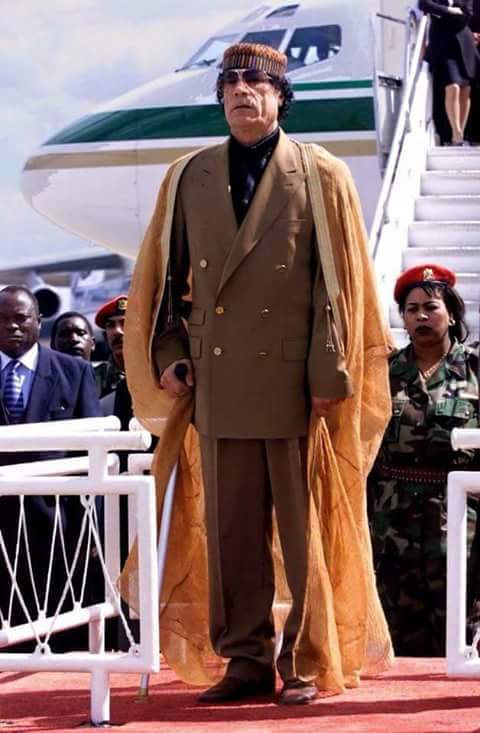When one looks on the trail of developments Gaddafi left behind, looking on the other side of the coin, it was great without a second thought. But why was he killed like a failure?

Here are some reasons why he was killed.
1. There is no electricity bill in Libya, electricity is free for all its citizens.
2. There is no interest on loans, banks in Libya are state-owned and loans given to all its citizens at 0% interest by law.
3. Home considered a human right in Libya – Gaddafi vowed that his parents would not get a house until everyone in Libya had a
home. Gaddafi’s father has died while him, his wife and his mother are still living in a tent.
4. All newlyweds in Libya receive $60,000 Dinar (US$ 50,000 ) by the government to buy their first apartment so to help start up
the family.
5. Education and medical treatments are free in Libya. Before Gaddafi only 25% of Libyans are literate. Today the figure is 83%.
6. If Libyans want to take up farming career, they would receive farm land, a farming house, equipment, seeds and livestock to kick- start their farms – all for free.
7. If Libyans cannot find the education or medical facilities they need in Libya, the government funds them to go abroad for it – not only free but they get US $2, 300/mth accommodation and car allowance.
8. In Libyan, if a Libyan buys a car, the government subsidized 50% of the price.
9. The price of petrol in Libya is $0. 14 per liter.
10. Libya has no external debt and its reserves amount to $150 billion – now frozen globally.
11. If a Libyan is unable to get employment after graduation the state would pay the average salary of the profession as if he or she is employed until
employment is found.
12. A portion of Libyan oil sale is, credited directly to the bank accounts of all Libyan citizens.
13. A mother who gave birth to a child receive US $5 ,000
14. 40 loaves of bread in Libya costs $ 0.15
15. 25% of Libyans have a university degree
16. Gaddafi carried out the world’s largest irrigation project, known as the Great Man- Made River project, to make water readily available throughout the desert country.













